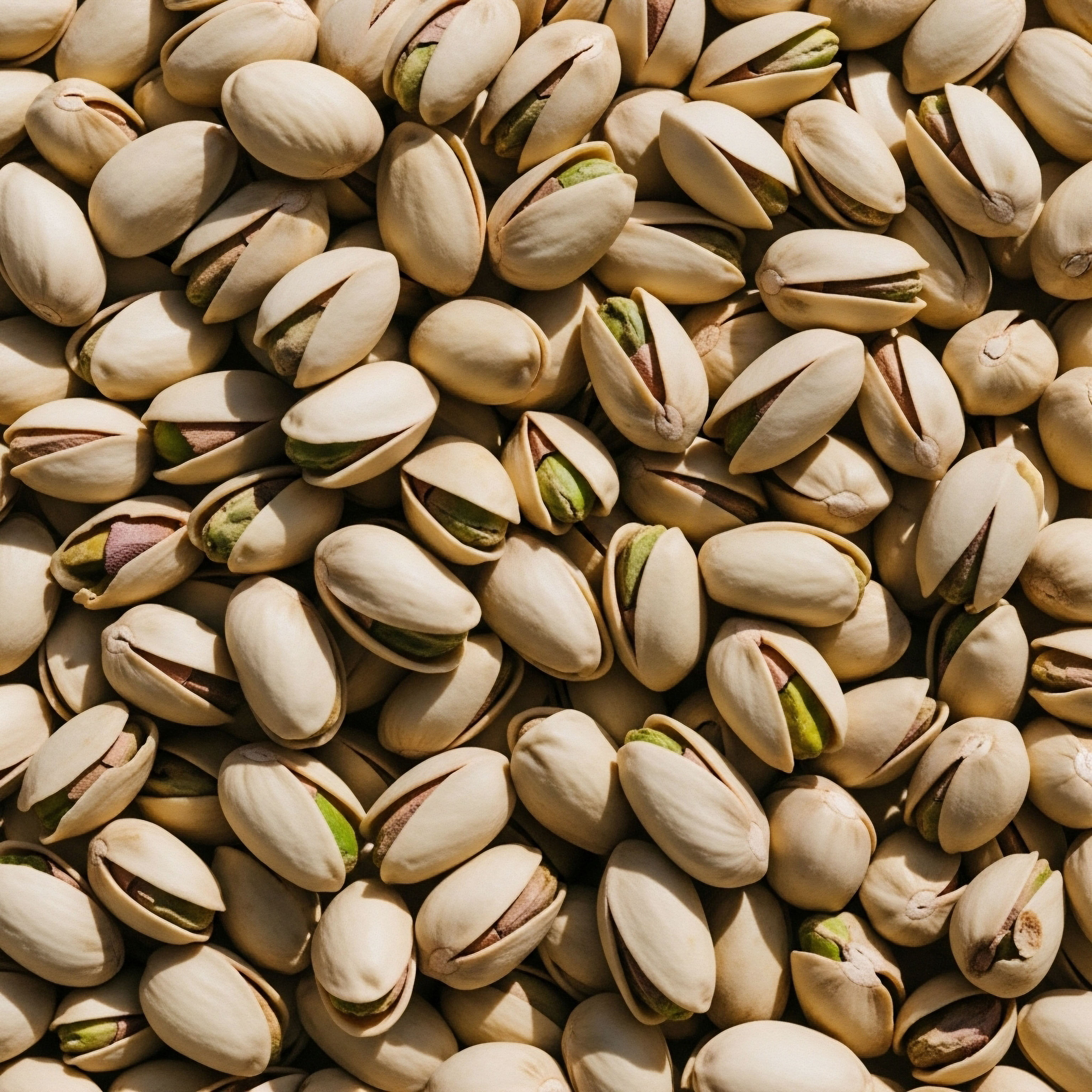

Fundamentals
Many individuals experience a subtle, yet persistent, decline in their overall vitality, often manifesting as diminished energy levels, changes in body composition, or a noticeable shift in mood. This experience can feel isolating, leaving one to wonder about the underlying causes of such profound alterations in daily function.
Acknowledging these lived experiences forms the bedrock of understanding, as these sensations are not merely subjective perceptions; they frequently signal deeper physiological recalibrations within the body’s intricate messaging systems. Our exploration begins with a focus on how specific dietary patterns influence the production of testosterone, a critical signaling molecule that orchestrates a wide array of bodily functions, extending far beyond its commonly recognized roles.
Testosterone, a primary androgen, is synthesized predominantly in the Leydig cells of the testes in biological males and in smaller quantities by the ovaries and adrenal glands in biological females. This steroid hormone is derived from cholesterol, a lipid molecule, underscoring the foundational role of dietary fat in its very creation.
Its influence permeates numerous physiological systems, impacting muscle mass, bone density, red blood cell production, cognitive function, and even cardiovascular health. When its production falters, the systemic consequences can be widespread, contributing to the very symptoms many individuals report.
The regulation of testosterone synthesis is governed by a sophisticated feedback loop known as the Hypothalamic-Pituitary-Gonadal (HPG) axis. This axis operates like a finely tuned internal thermostat. The hypothalamus, a region in the brain, releases Gonadotropin-Releasing Hormone (GnRH).
This chemical messenger then prompts the pituitary gland, situated at the base of the brain, to secrete two crucial hormones ∞ Luteinizing Hormone (LH) and Follicle-Stimulating Hormone (FSH). LH directly stimulates the Leydig cells to produce testosterone, while FSH plays a role in spermatogenesis in males and follicular development in females.
As testosterone levels rise, they signal back to the hypothalamus and pituitary, dampening further GnRH, LH, and FSH release, thereby maintaining a stable equilibrium. Disruptions to any part of this axis, whether from external factors like diet or internal physiological stressors, can alter testosterone output.
Testosterone, a steroid hormone synthesized from cholesterol, plays a central role in regulating muscle mass, bone density, and overall vitality, with its production intricately controlled by the HPG axis.
Dietary patterns serve as fundamental inputs to this complex hormonal machinery. The macronutrients ∞ carbohydrates, proteins, and fats ∞ provide the raw materials and energetic substrates necessary for hormone synthesis and metabolic processes. Micronutrients, including vitamins and minerals, function as essential cofactors for enzymatic reactions involved in steroidogenesis and overall endocrine function. A diet lacking in specific building blocks or one that promotes systemic inflammation can directly impede the optimal functioning of the HPG axis and the cells responsible for testosterone production.
Consider the role of cholesterol. As the precursor molecule for all steroid hormones, including testosterone, its availability is paramount. While the body can synthesize cholesterol, dietary intake of healthy fats provides a readily accessible pool. The type of fat consumed also holds significance; saturated and monounsaturated fats appear to support testosterone production more effectively than highly processed polyunsaturated fats, particularly those high in omega-6 fatty acids, which can promote inflammation.
Protein intake is equally vital. Amino acids, the building blocks of protein, are necessary for the synthesis of enzymes involved in steroid hormone pathways and for the production of various signaling molecules that influence the HPG axis. Adequate protein consumption supports lean muscle mass, which itself is metabolically active and influences hormonal signaling. Conversely, insufficient protein can lead to a catabolic state, potentially impacting overall hormonal balance.
Carbohydrates, often viewed through a simplistic lens, also play a nuanced role. They influence insulin sensitivity and glucose metabolism, both of which are deeply intertwined with hormonal regulation. Consistent, stable blood glucose levels, supported by complex carbohydrates, can help maintain insulin sensitivity, a condition favorable for hormonal equilibrium.
Erratic blood sugar spikes and crashes, often associated with refined carbohydrate intake, can lead to insulin resistance, a state that can negatively affect testosterone levels by increasing aromatase activity, an enzyme that converts testosterone into estrogen.
Beyond macronutrients, specific micronutrients are indispensable for testosterone synthesis and regulation. Zinc, for instance, is a mineral critical for the activity of numerous enzymes, including those involved in testosterone production and the conversion of cholesterol to steroid hormones. A deficiency in zinc can directly lead to reduced testosterone levels.
Vitamin D, often considered a vitamin but functioning as a steroid hormone itself, possesses receptors on Leydig cells and plays a direct role in testosterone synthesis. Insufficient vitamin D levels are frequently correlated with lower testosterone.
Magnesium contributes to free testosterone levels by reducing its binding to Sex Hormone-Binding Globulin (SHBG), a protein that transports testosterone in the blood, making it less bioavailable. These examples underscore that a holistic dietary approach, rich in diverse whole foods, provides the necessary substrate and cofactors for optimal hormonal function.


Intermediate
Understanding the foundational elements of testosterone production sets the stage for a deeper exploration into how specific dietary patterns can either optimize or impede this vital process. The body’s metabolic state, profoundly influenced by dietary choices, directly impacts the intricate dance of hormonal signaling. This section delves into the clinical implications of various eating approaches, detailing the mechanisms through which they exert their influence and how these insights inform personalized wellness protocols.
The impact of dietary fat on testosterone levels is a topic of considerable discussion. Research indicates that diets with very low fat content can correlate with reduced testosterone production. This observation aligns with the biological reality that cholesterol, a lipid, serves as the direct precursor for all steroid hormones.
When dietary fat intake is significantly restricted, the availability of this essential building block may become limited, potentially constraining the body’s capacity for optimal steroidogenesis. Conversely, a balanced intake of healthy fats, particularly monounsaturated fats found in avocados, olive oil, and nuts, along with saturated fats from quality animal sources, appears to support robust testosterone levels. These fats provide the necessary cholesterol while also influencing cell membrane fluidity, which is important for receptor function and cellular signaling.
The relationship between carbohydrate intake and testosterone is more complex, often mediated by insulin sensitivity. High carbohydrate diets, especially those rich in refined sugars and processed grains, can lead to chronic elevations in blood glucose and insulin. Over time, this can induce insulin resistance, a state where cells become less responsive to insulin’s signals.
Insulin resistance is associated with increased activity of the enzyme aromatase, which converts testosterone into estrogen. This conversion reduces circulating testosterone and can lead to an unfavorable estrogen-to-testosterone ratio. Conversely, a diet emphasizing complex carbohydrates, such as whole grains, vegetables, and legumes, promotes stable blood sugar levels and maintains insulin sensitivity, thereby supporting a more favorable hormonal environment.
Dietary fat and carbohydrate intake profoundly influence testosterone levels, with healthy fats supporting steroidogenesis and balanced carbohydrate intake maintaining insulin sensitivity to prevent unfavorable hormonal conversions.
Protein consumption also holds a significant place in this discussion. Adequate protein intake is essential not only for muscle protein synthesis but also for maintaining a healthy metabolic rate and supporting satiety. Diets that are consistently low in protein can lead to a catabolic state, where the body breaks down its own tissues, potentially disrupting hormonal balance.
Conversely, sufficient protein intake, particularly from sources rich in essential amino acids, provides the necessary substrates for enzyme production and supports overall cellular health, which indirectly benefits endocrine function.
Beyond macronutrient ratios, the overall inflammatory load of a diet plays a critical role. Chronic, low-grade inflammation, often driven by diets high in processed foods, unhealthy fats, and refined sugars, can suppress testosterone production. Inflammatory cytokines can directly inhibit Leydig cell function and interfere with the HPG axis signaling.
An anti-inflammatory dietary pattern, rich in antioxidants from fruits and vegetables, omega-3 fatty acids from fatty fish, and diverse fiber sources, can mitigate this inflammatory burden, thereby creating a more conducive environment for hormonal equilibrium.
The gut microbiome, a complex ecosystem of microorganisms residing in the digestive tract, has also emerged as a significant modulator of hormonal health. A diverse and balanced gut microbiome contributes to nutrient absorption, detoxification pathways, and the regulation of inflammation.
Dysbiosis, an imbalance in gut flora, can lead to increased intestinal permeability, allowing inflammatory compounds to enter the bloodstream, which can then negatively impact systemic hormonal balance, including testosterone. Dietary choices that support gut health, such as fermented foods and a wide array of plant fibers, can indirectly support testosterone production by reducing systemic inflammation and improving nutrient assimilation.

Dietary Patterns and Their Hormonal Impact
Different dietary patterns exert distinct influences on testosterone levels, each with its own set of considerations.
- High-Fat, Moderate-Protein, Lower-Carbohydrate Diets ∞ These patterns, such as ketogenic or paleo-inspired approaches, often emphasize healthy fats and protein while restricting refined carbohydrates. Such diets can support testosterone by providing ample cholesterol precursors and by improving insulin sensitivity. However, extreme carbohydrate restriction over prolonged periods can sometimes lead to increased cortisol levels, which can suppress testosterone.
- Balanced Macronutrient Diets ∞ A diet with a balanced distribution of macronutrients, focusing on whole, unprocessed foods, tends to support stable blood sugar and insulin levels, providing a steady supply of nutrients without inducing excessive inflammatory responses. This approach generally promotes hormonal equilibrium.
- Vegetarian and Vegan Diets ∞ While often rich in fiber and antioxidants, these diets require careful planning to ensure adequate intake of essential micronutrients like zinc, vitamin B12, and iron, which are more readily available in animal products and are crucial for testosterone synthesis. Plant-based diets can also be lower in saturated fat, which some studies link to lower testosterone, though this is often offset by other health benefits.

Supporting Clinical Protocols through Nutrition
Dietary strategies are not merely standalone interventions; they serve as a powerful adjunct to clinical protocols aimed at optimizing hormonal health. For individuals undergoing Testosterone Replacement Therapy (TRT), whether male or female, dietary choices can significantly influence the efficacy of the treatment and mitigate potential side effects.
For men on TRT, typically involving weekly intramuscular injections of Testosterone Cypionate, alongside medications like Gonadorelin to maintain natural production and fertility, and Anastrozole to manage estrogen conversion, diet plays a supportive role. A diet that minimizes inflammation and maintains healthy body composition can reduce the likelihood of increased aromatase activity, which is often higher in individuals with greater adipose tissue. This can help in managing estrogen levels, thereby reducing the need for higher doses of aromatase inhibitors.
Similarly, for women receiving testosterone via subcutaneous injections or pellet therapy, often combined with progesterone, dietary support is equally important. Maintaining a healthy metabolic profile through balanced nutrition can optimize the body’s response to exogenous testosterone and help manage symptoms related to hormonal fluctuations.
Individuals utilizing Growth Hormone Peptide Therapy, such as Sermorelin or Ipamorelin / CJC-1295, for anti-aging, muscle gain, or fat loss, also benefit immensely from a nutrient-dense diet. These peptides work by stimulating the body’s natural growth hormone release. Optimal protein intake is essential to maximize the muscle-building and repair benefits, while a balanced carbohydrate and fat intake supports overall metabolic function and energy levels required for these processes.
The table below summarizes key dietary components and their general influence on testosterone production, offering a practical guide for nutritional considerations.
| Dietary Component | Influence on Testosterone | Mechanism of Action |
|---|---|---|
| Healthy Fats (Monounsaturated, Saturated) | Supports production | Provides cholesterol precursor for steroidogenesis; influences cell membrane function. |
| Refined Carbohydrates | Can reduce levels | Leads to insulin resistance, increased aromatase activity, converting testosterone to estrogen. |
| Complex Carbohydrates | Supports balance | Maintains stable blood sugar, preserves insulin sensitivity. |
| Adequate Protein | Supports production | Provides amino acids for enzyme synthesis; maintains muscle mass and metabolic health. |
| Zinc | Essential cofactor | Required for enzymes in testosterone synthesis; prevents deficiency-related decline. |
| Vitamin D | Directly involved | Acts as a steroid hormone; receptors on Leydig cells influence synthesis. |
| Magnesium | Increases bioavailability | Reduces SHBG binding, increasing free testosterone. |
| Omega-3 Fatty Acids | Reduces inflammation | Mitigates systemic inflammation, which can suppress testosterone. |


Academic
The intricate relationship between specific dietary patterns and testosterone production extends into the molecular and cellular realms, revealing a sophisticated interplay of enzymatic pathways, genetic expression, and systemic metabolic signaling. To truly grasp how nutrition influences this vital androgen, one must consider the deeper endocrinological mechanisms and the interconnectedness of various biological axes. This exploration moves beyond general dietary advice, delving into the precise biochemical underpinnings that govern hormonal synthesis and regulation.
Testosterone synthesis, a process known as steroidogenesis, begins with cholesterol. This molecule is transported into the mitochondria of Leydig cells, where the enzyme cholesterol side-chain cleavage enzyme (CYP11A1), also known as P450scc, converts it into pregnenolone. This is the rate-limiting step in steroid hormone production.
Subsequent enzymatic reactions, involving enzymes like 3-beta-hydroxysteroid dehydrogenase (3β-HSD) and 17-alpha-hydroxylase (CYP17A1), transform pregnenolone through a series of intermediates ∞ progesterone, 17-hydroxyprogesterone, and androstenedione ∞ ultimately yielding testosterone. Each of these enzymatic steps requires specific cofactors and is sensitive to the cellular environment, which is profoundly shaped by dietary inputs.
The conversion of testosterone into other active metabolites is also critical. Testosterone can be converted into dihydrotestosterone (DHT) by the enzyme 5-alpha reductase, a more potent androgen that mediates many of testosterone’s effects in target tissues. Alternatively, testosterone can be converted into estradiol, a primary estrogen, by the enzyme aromatase (CYP19A1).
The balance between these conversion pathways is crucial for overall hormonal health. Dietary factors can modulate the activity of both 5-alpha reductase and aromatase, thereby influencing the bioavailability and metabolic fate of testosterone. For instance, certain phytochemicals found in cruciferous vegetables can support healthy estrogen metabolism by influencing aromatase activity and detoxification pathways.
Testosterone synthesis involves a cascade of enzymatic conversions from cholesterol, with dietary factors modulating key enzymes like P450scc, 5-alpha reductase, and aromatase, thereby influencing its production and metabolic fate.
The systemic metabolic state, heavily influenced by diet, exerts profound control over these enzymatic processes. Chronic hyperinsulinemia, often a consequence of diets high in refined carbohydrates and sugars, can directly upregulate aromatase activity, particularly in adipose tissue. This leads to increased conversion of testosterone to estrogen, contributing to lower circulating testosterone levels and potentially exacerbating symptoms of hormonal imbalance.
Conversely, dietary patterns that promote insulin sensitivity, such as those rich in fiber and healthy fats, can help maintain optimal aromatase activity, preserving a healthier testosterone-to-estrogen ratio.
Inflammation, another key metabolic modulator, also impacts testosterone production at a cellular level. Pro-inflammatory cytokines, such as Tumor Necrosis Factor-alpha (TNF-α) and Interleukin-6 (IL-6), can directly inhibit Leydig cell function and suppress the expression of genes encoding steroidogenic enzymes.
Diets high in pro-inflammatory components, such as trans fats and excessive omega-6 fatty acids, can perpetuate this inflammatory state, thereby creating an unfavorable environment for testosterone synthesis. Conversely, diets rich in anti-inflammatory compounds, including omega-3 fatty acids, polyphenols, and antioxidants, can mitigate this inflammatory burden, supporting Leydig cell integrity and function.

The Gut-Hormone Axis
Emerging research highlights the significant role of the gut microbiome in hormonal regulation, a concept sometimes referred to as the gut-hormone axis. The gut microbiota influences the enterohepatic circulation of estrogens through the enzyme beta-glucuronidase.
An imbalanced gut microbiome (dysbiosis) can lead to increased beta-glucuronidase activity, which deconjugates estrogens in the gut, allowing them to be reabsorbed into circulation rather than excreted. While this mechanism is primarily studied in relation to estrogen, the overall health of the gut microbiome, its influence on systemic inflammation, and its role in nutrient absorption indirectly affect the entire endocrine system, including testosterone production.
A diet rich in diverse prebiotics (fibers) and probiotics (fermented foods) supports a healthy gut ecosystem, which in turn contributes to a more balanced hormonal milieu.

Epigenetic Modulation by Diet
Beyond direct enzymatic effects, dietary components can exert influence through epigenetic mechanisms, altering gene expression without changing the underlying DNA sequence. Nutrients like folate, B vitamins, and methionine act as methyl donors, influencing DNA methylation patterns.
Specific dietary compounds, such as sulforaphane from broccoli or curcumin from turmeric, can modulate histone modification and microRNA expression, which in turn can affect the transcription of genes involved in steroidogenesis or hormone receptor sensitivity. This suggests that long-term dietary patterns can have lasting effects on the body’s capacity to produce and respond to testosterone, offering a deeper understanding of personalized wellness protocols.

Clinical Implications for Hormonal Optimization
The academic understanding of dietary influences on testosterone production provides a robust framework for clinical interventions. When considering Testosterone Replacement Therapy (TRT), dietary optimization becomes an integral part of the comprehensive treatment plan. For instance, managing body composition through appropriate dietary strategies can reduce adipose tissue, thereby lowering aromatase activity and potentially minimizing the need for aromatase inhibitors like Anastrozole. This approach aligns with the goal of achieving hormonal balance with the lowest effective dose of exogenous hormones.
For men undergoing Post-TRT or Fertility-Stimulating Protocols, which often involve medications like Gonadorelin, Tamoxifen, and Clomid, dietary support for natural testosterone production and sperm health is paramount. Nutrient sufficiency, particularly of zinc, selenium, and antioxidants, is critical for spermatogenesis and Leydig cell recovery.
The following list details specific dietary considerations that directly impact the molecular pathways of testosterone synthesis and metabolism:
- Cholesterol Intake ∞ Ensuring adequate intake of dietary cholesterol from whole food sources (e.g. eggs, grass-fed meats) provides the primary substrate for steroidogenesis, directly supporting the P450scc enzyme activity.
- Saturated and Monounsaturated Fats ∞ These fat types appear to be more favorable for testosterone production compared to excessive polyunsaturated fats, potentially by influencing cell membrane fluidity and receptor function in Leydig cells.
- Insulin Sensitivity Management ∞ Prioritizing complex carbohydrates, high-fiber foods, and healthy fats helps stabilize blood glucose and insulin, preventing the upregulation of aromatase activity in adipose tissue.
- Anti-inflammatory Nutrition ∞ Consuming a diet rich in omega-3 fatty acids, antioxidants (from colorful fruits and vegetables), and polyphenols reduces systemic inflammation, thereby protecting Leydig cell function from cytokine-mediated suppression.
- Micronutrient Sufficiency ∞ Ensuring adequate intake of zinc, vitamin D, magnesium, and B vitamins is critical, as these act as essential cofactors for numerous enzymes involved in the steroidogenic pathway and overall endocrine health.
- Gut Microbiome Support ∞ Incorporating fermented foods and diverse plant fibers promotes a healthy gut ecosystem, which can indirectly influence hormonal balance by reducing systemic inflammation and optimizing nutrient absorption.
The precise mechanisms by which dietary patterns affect testosterone production are multifaceted, involving direct substrate provision, enzymatic modulation, inflammatory signaling, and even epigenetic regulation. A deep understanding of these interactions allows for the creation of highly personalized dietary strategies that complement clinical interventions, aiming to restore optimal hormonal function and overall well-being.

References
- Travison, Thomas G. et al. “The relationship between testosterone levels and dietary nutrients in men.” Journal of the American College of Nutrition, vol. 27, no. 4, 2008, pp. 436-442.
- Volek, Jeff S. et al. “Effects of a high-fat diet on serum testosterone and cortisol in men.” Journal of the American College of Nutrition, vol. 20, no. 5, 2001, pp. 470-476.
- Pilz, S. et al. “Effect of vitamin D supplementation on testosterone levels in men.” Hormone and Metabolic Research, vol. 43, no. 3, 2011, pp. 223-225.
- Prasad, Ananda S. et al. “Zinc status and serum testosterone levels in healthy adults.” Nutrition, vol. 12, no. 5, 1996, pp. 344-348.
- Cinar, Vedat, et al. “Effects of magnesium supplementation on testosterone levels of athletes and sedentary subjects at rest and after exhaustion.” Biological Trace Element Research, vol. 135, no. 1-3, 2010, pp. 18-23.
- Guyton, Arthur C. and John E. Hall. Textbook of Medical Physiology. 13th ed. Elsevier, 2016.
- Boron, Walter F. and Emile L. Boulpaep. Medical Physiology. 3rd ed. Elsevier, 2017.
- Santen, Richard J. et al. “Aromatase inhibitors in men ∞ effects on gonadotropins and gonadal steroids.” Journal of Clinical Endocrinology & Metabolism, vol. 93, no. 2, 2008, pp. 368-376.
- Wharton, S. et al. “The effect of diet on testosterone levels in men ∞ a systematic review.” Andrology, vol. 9, no. 2, 2021, pp. 273-282.

Reflection
The journey into understanding how specific dietary patterns influence testosterone production reveals a profound truth ∞ our biological systems are not passive recipients of external influences. They are dynamic, responsive entities, constantly adapting to the inputs we provide. This exploration is not merely an academic exercise; it is an invitation to introspection, a call to consider your own unique biological landscape.
The knowledge gained about the intricate dance of hormones, enzymes, and nutrients serves as a powerful compass, guiding you toward a more informed relationship with your body.
Recognizing the interconnectedness of your endocrine system, metabolic function, and daily nutritional choices is the initial step toward reclaiming vitality. Each dietary decision, however small, contributes to the larger symphony of your internal chemistry. This understanding empowers you to move beyond generic health advice, allowing you to tailor your approach to wellness with precision and intention. Your personal journey toward optimal hormonal health is a continuous process of learning, adaptation, and proactive engagement with your body’s innate intelligence.



